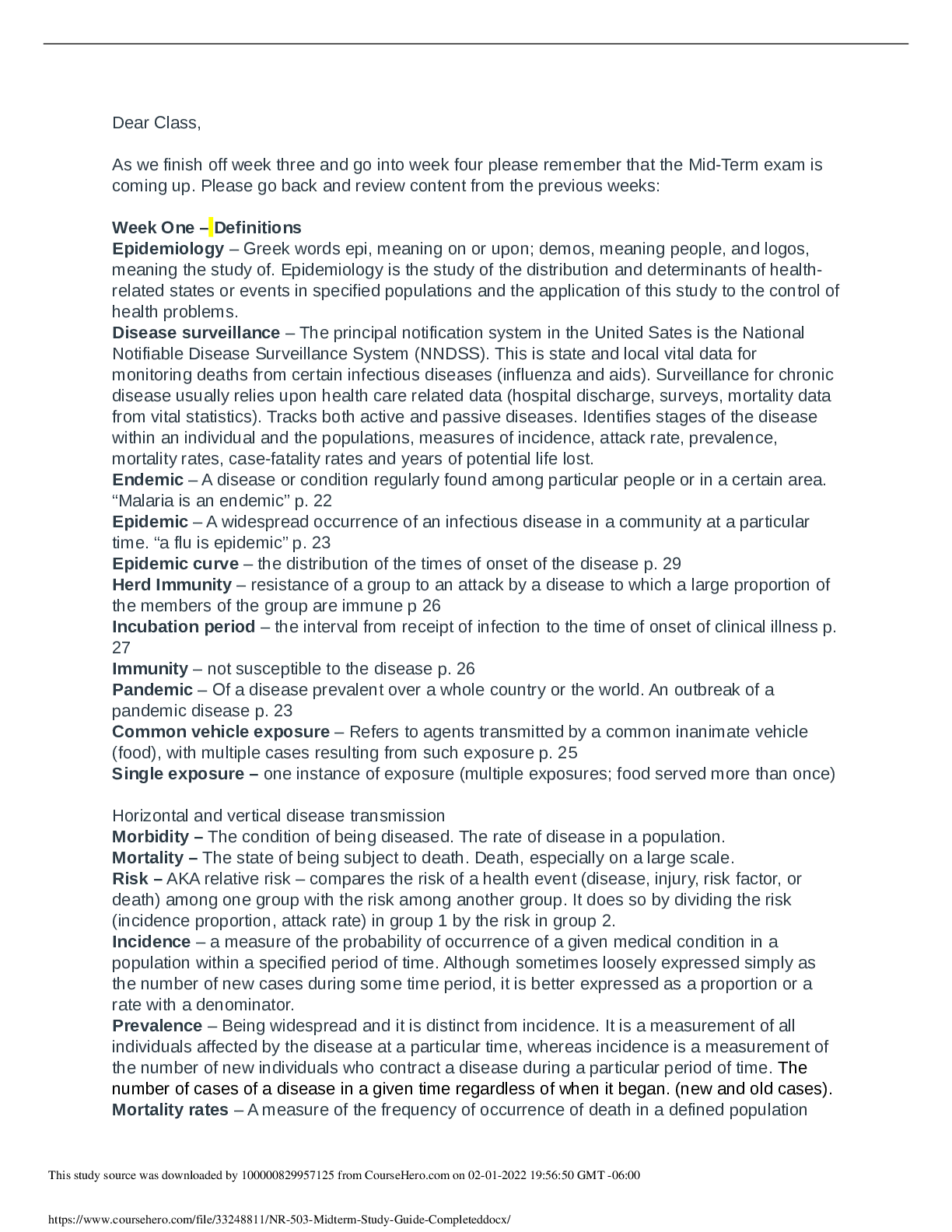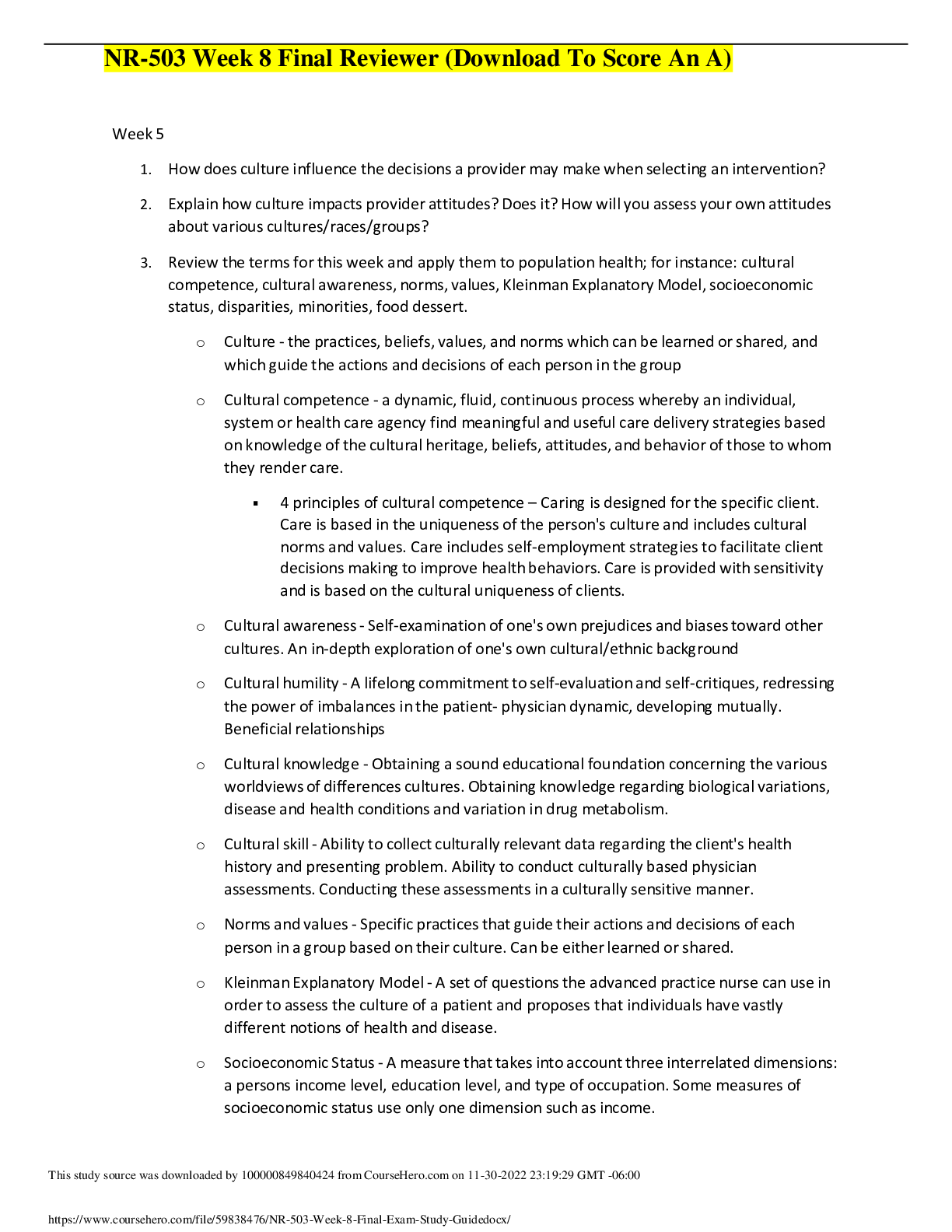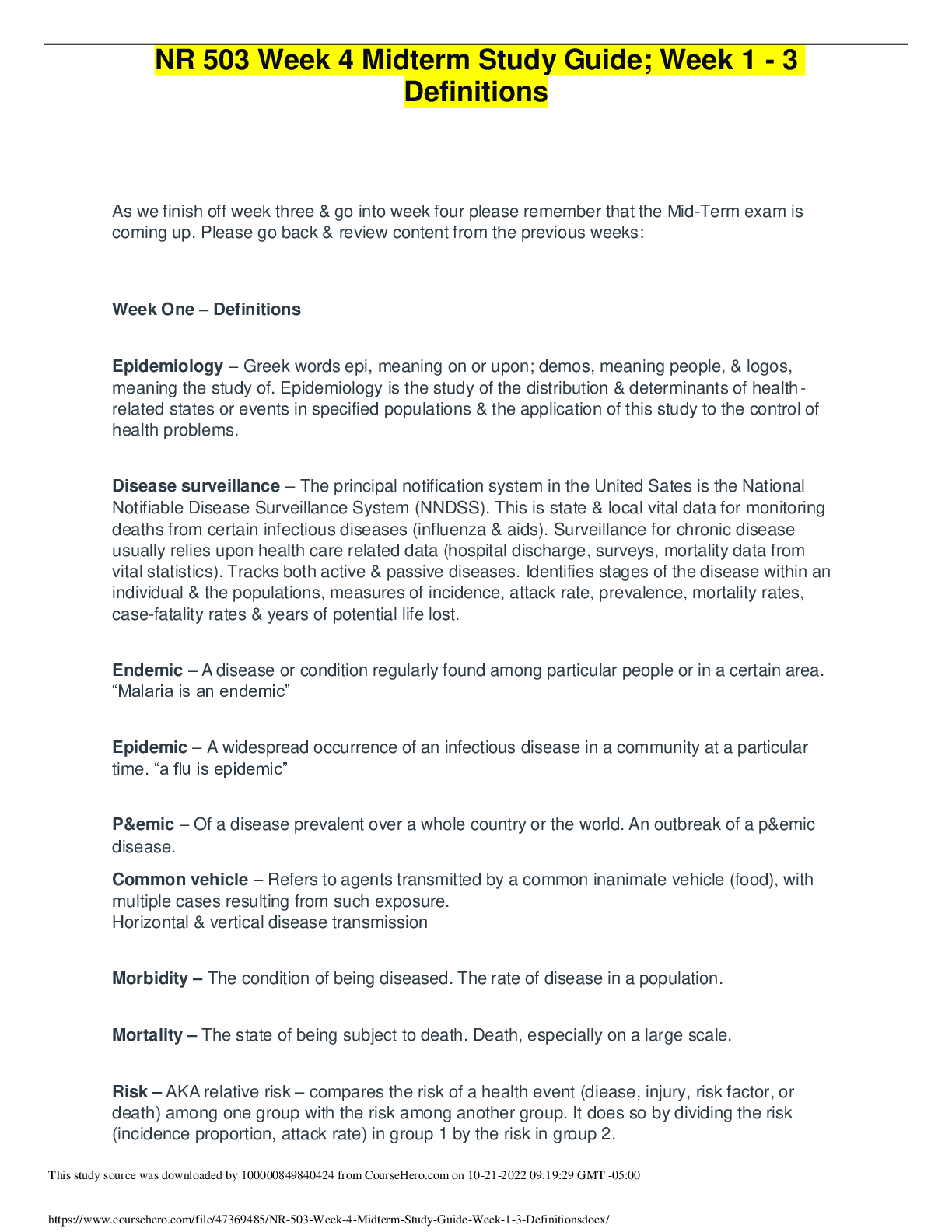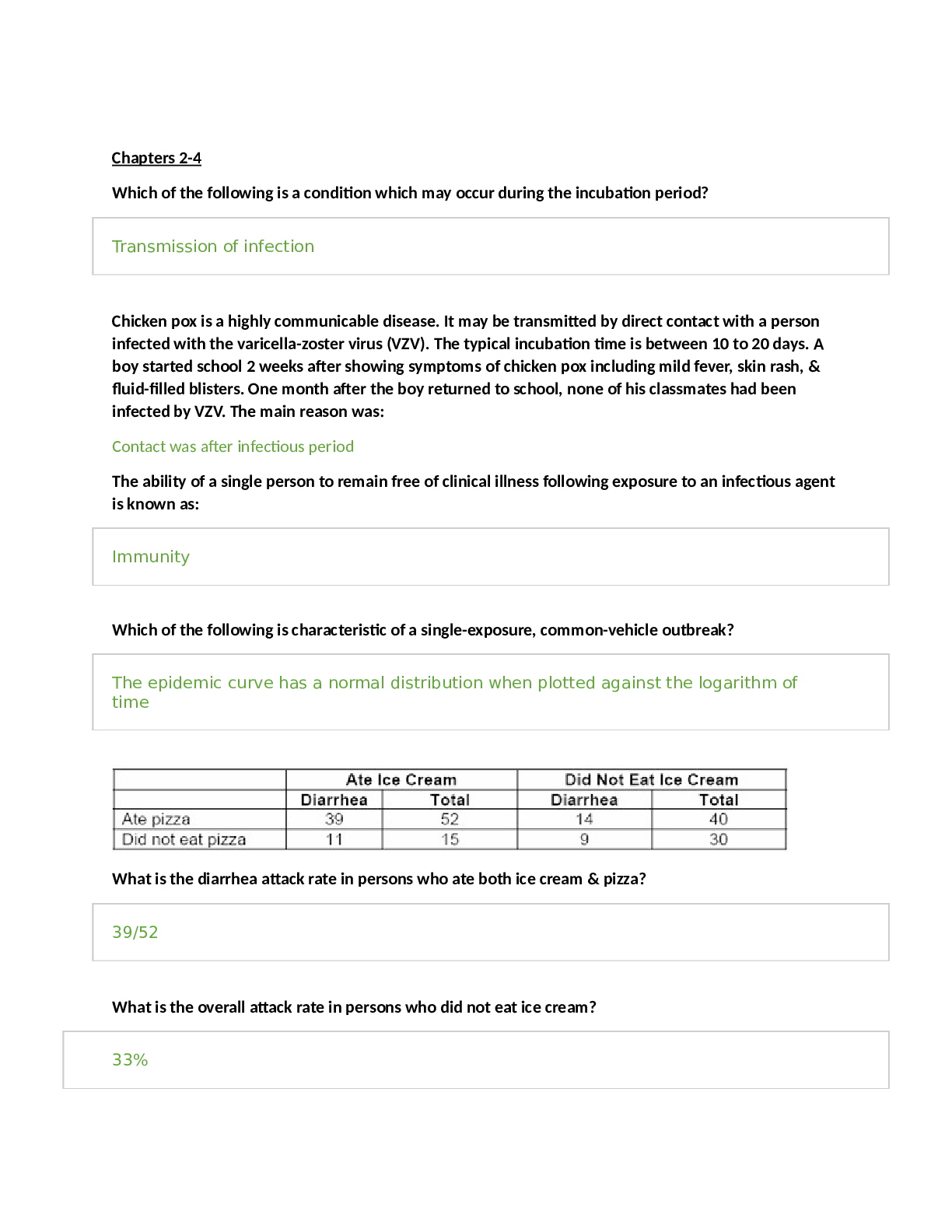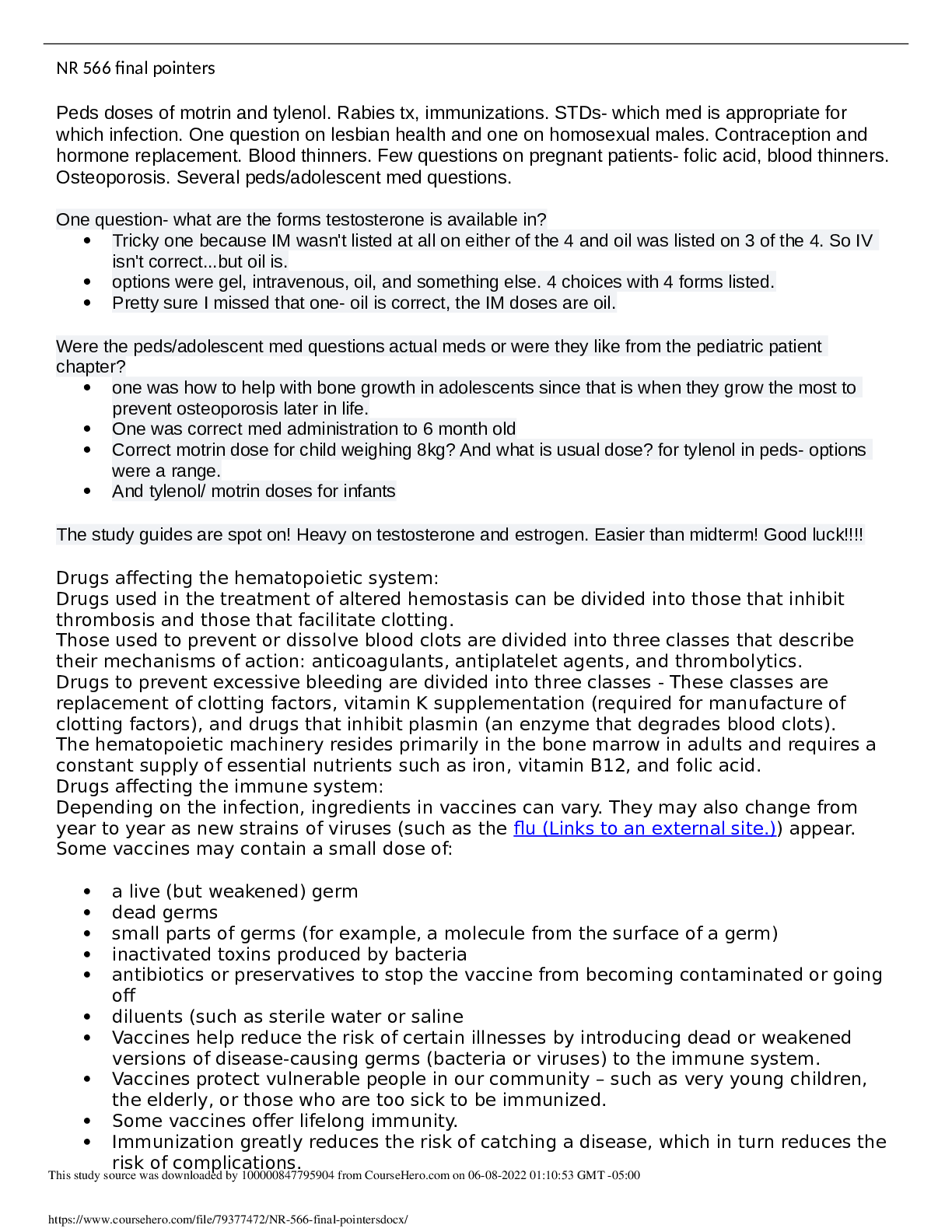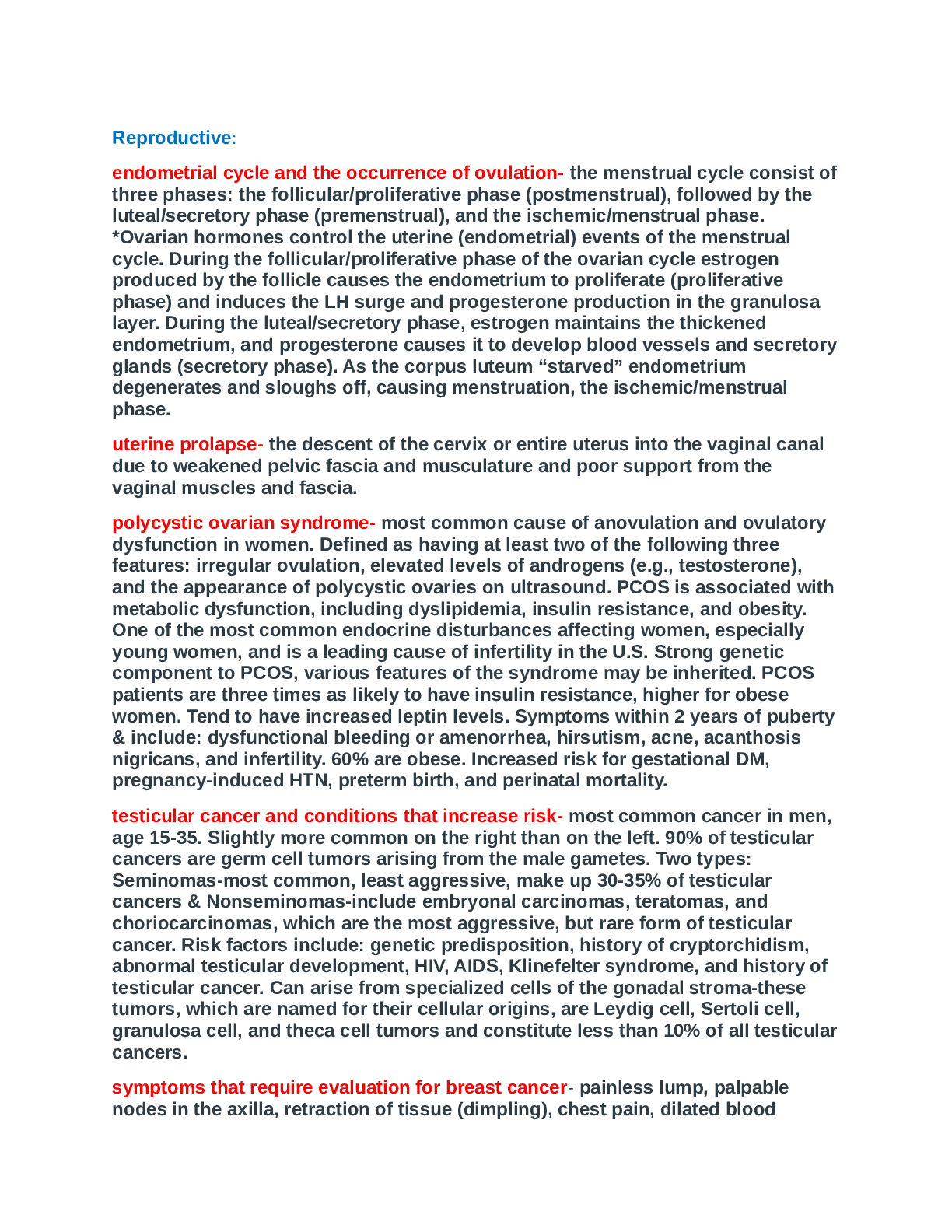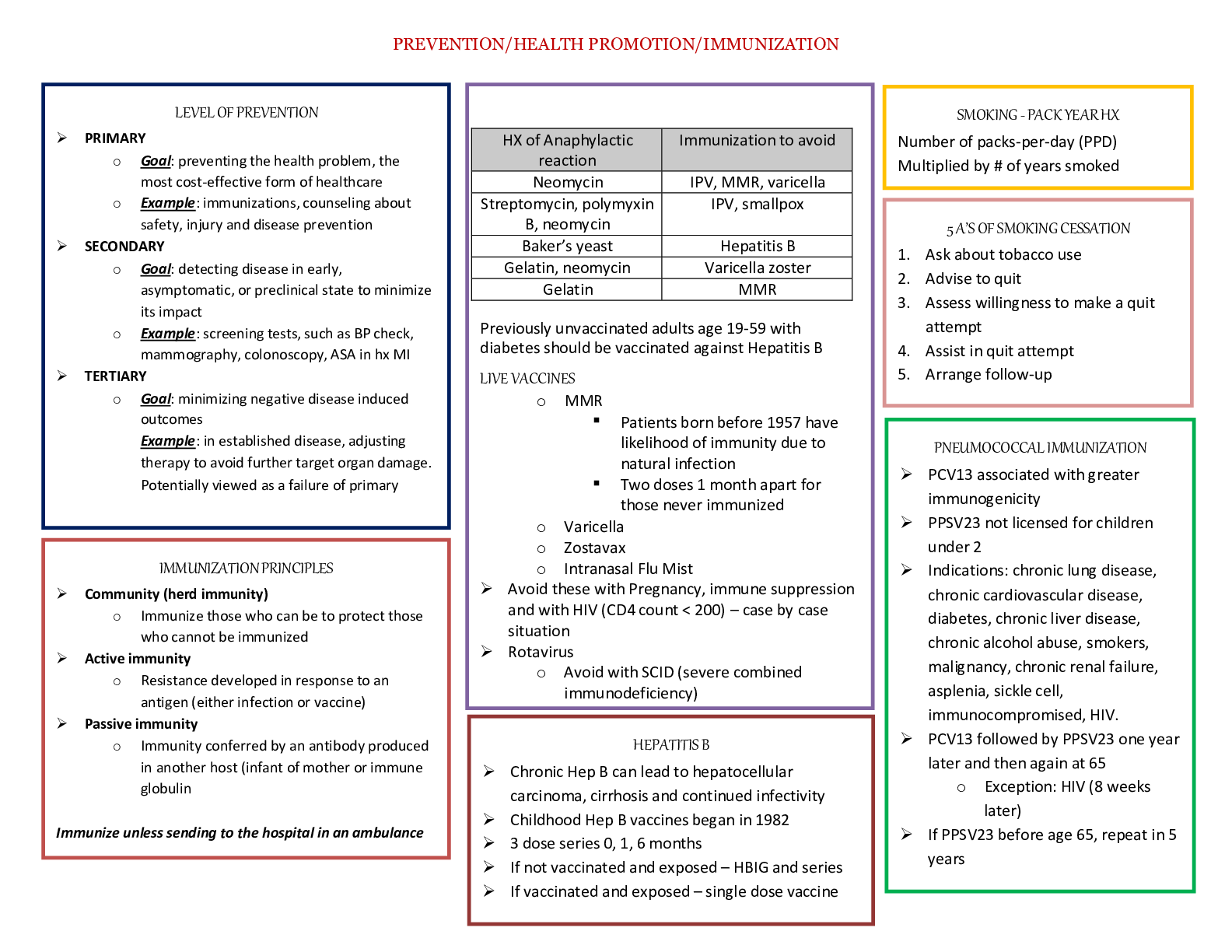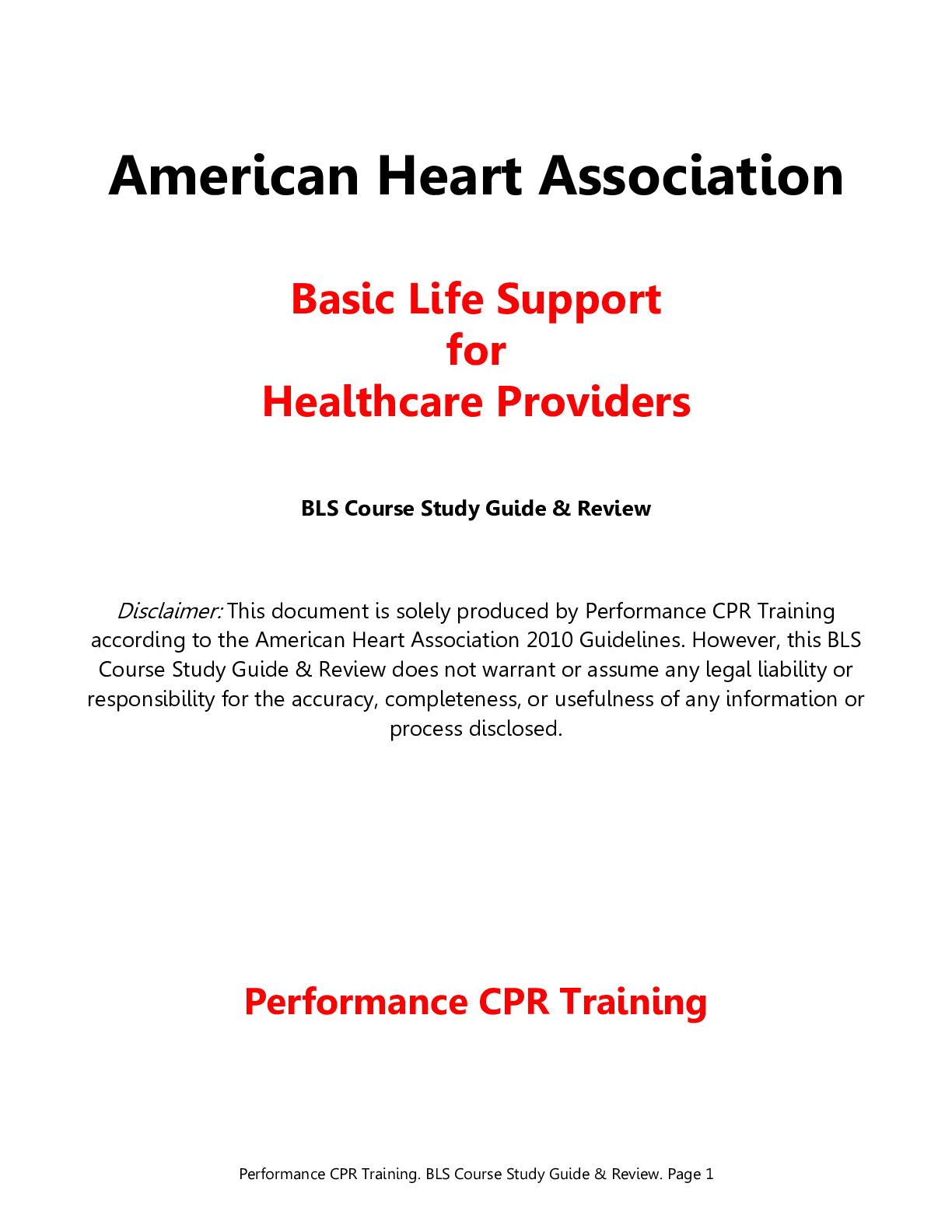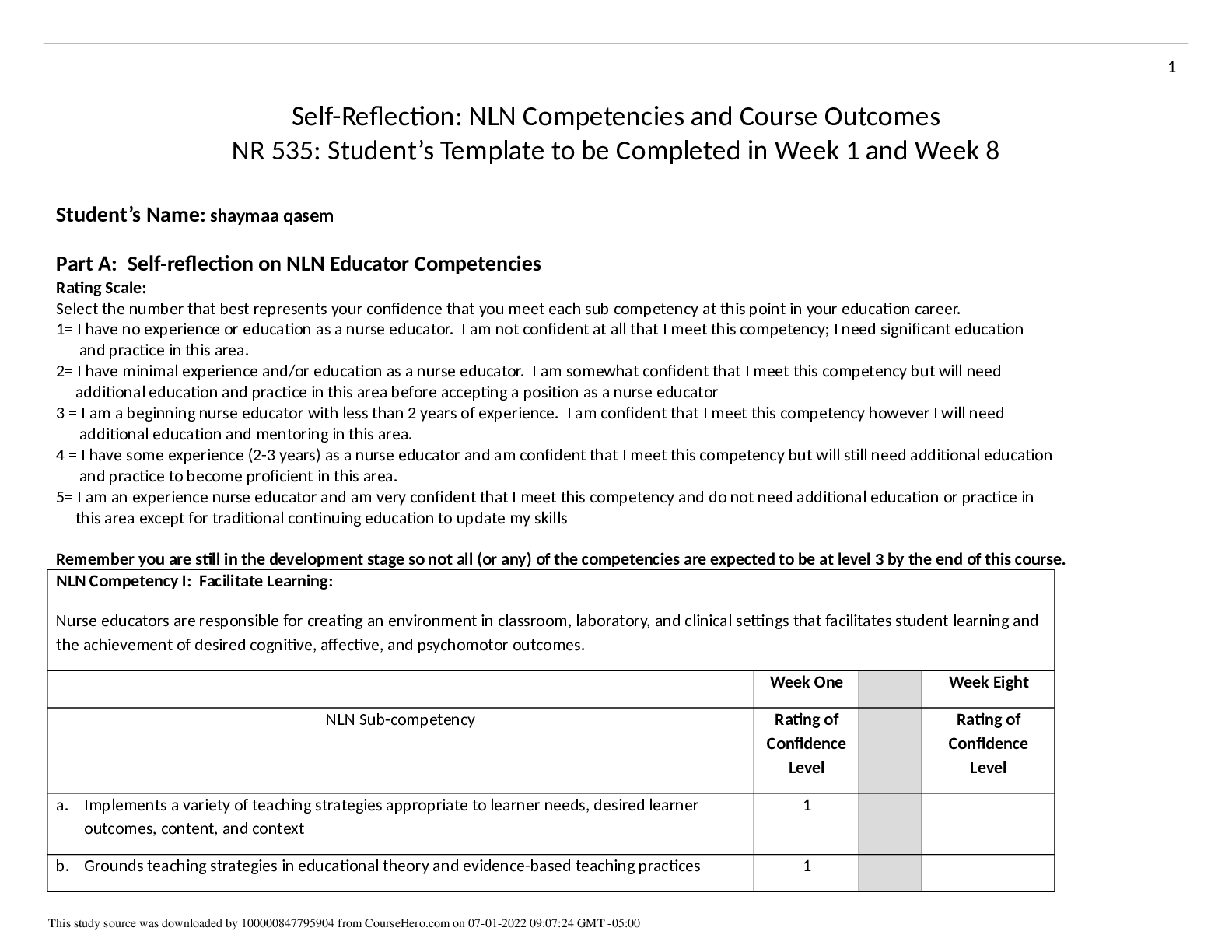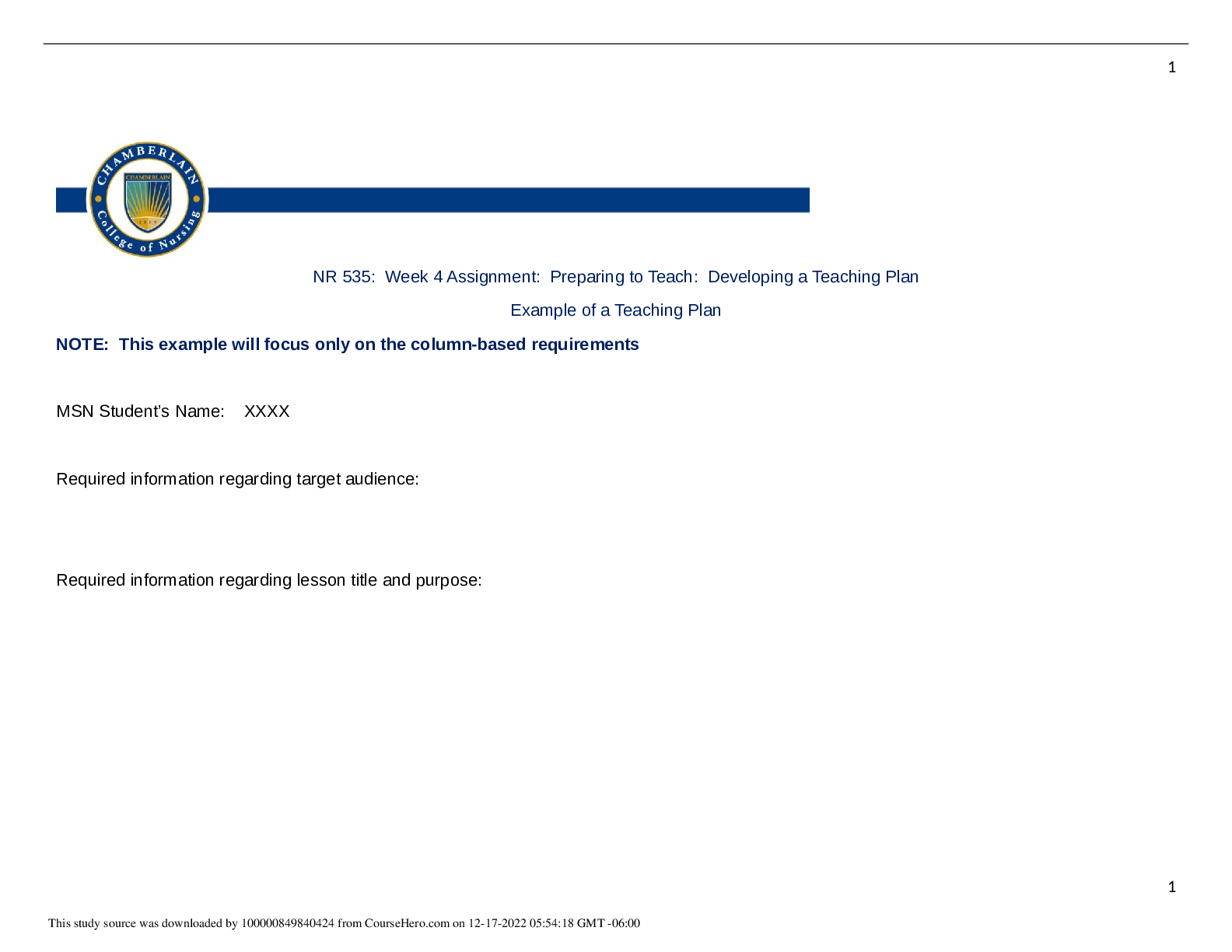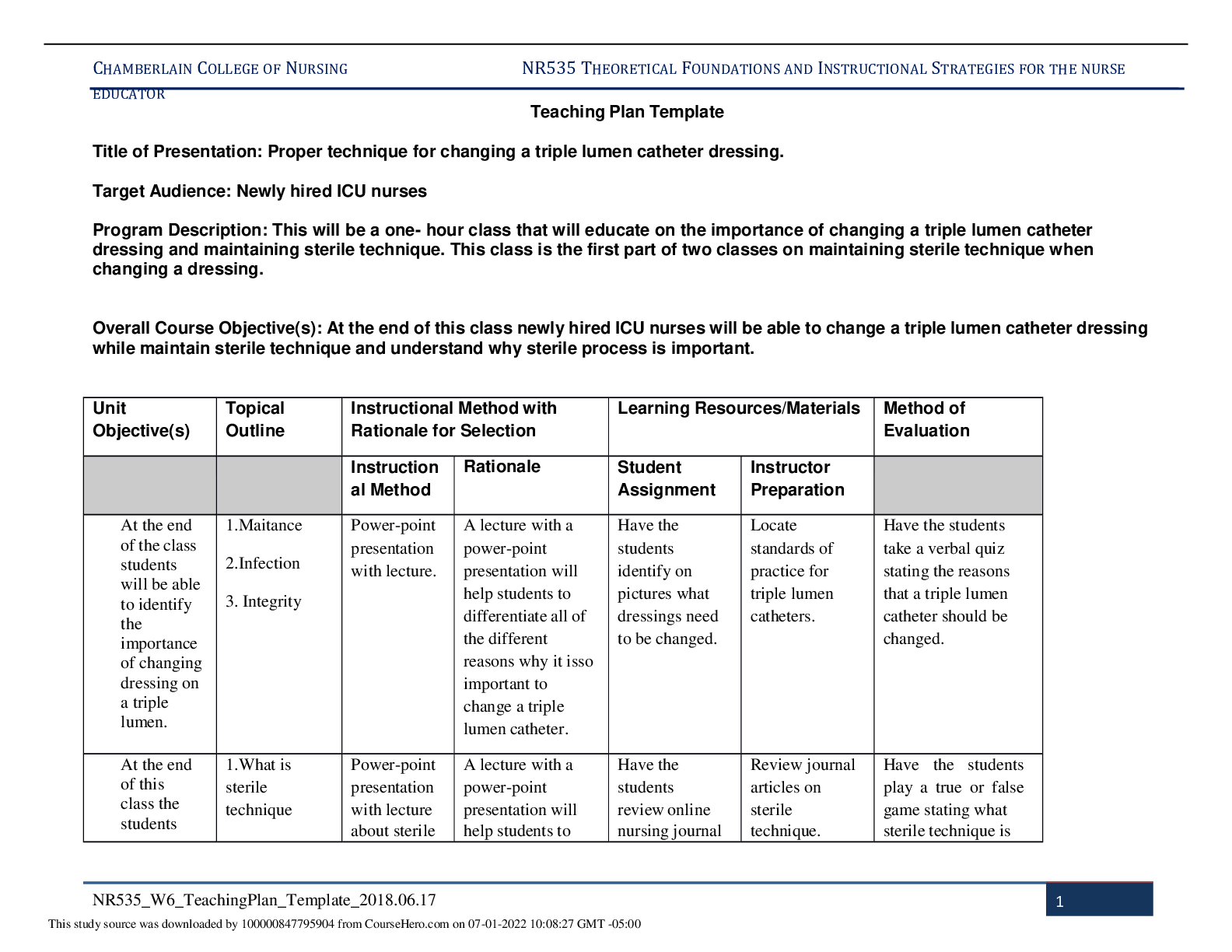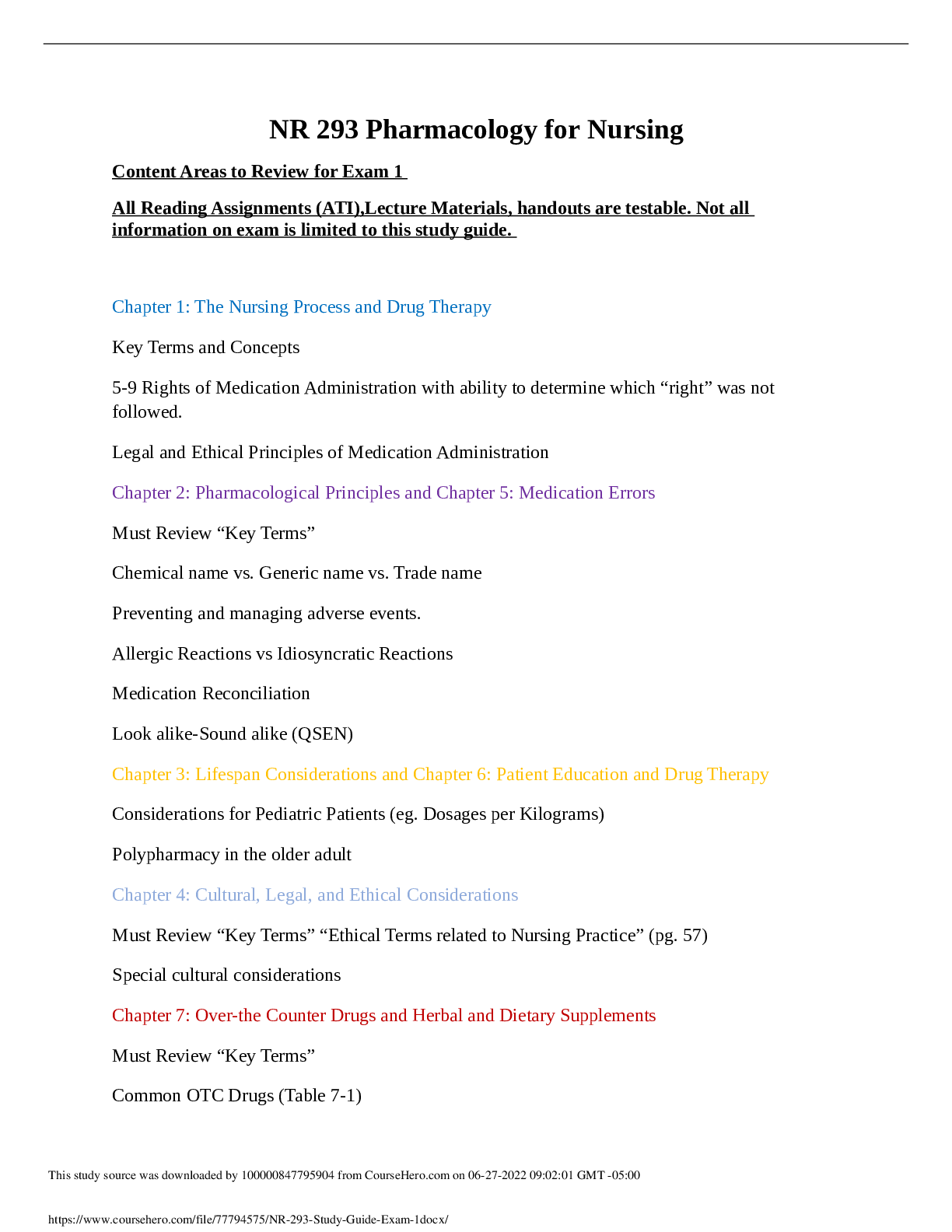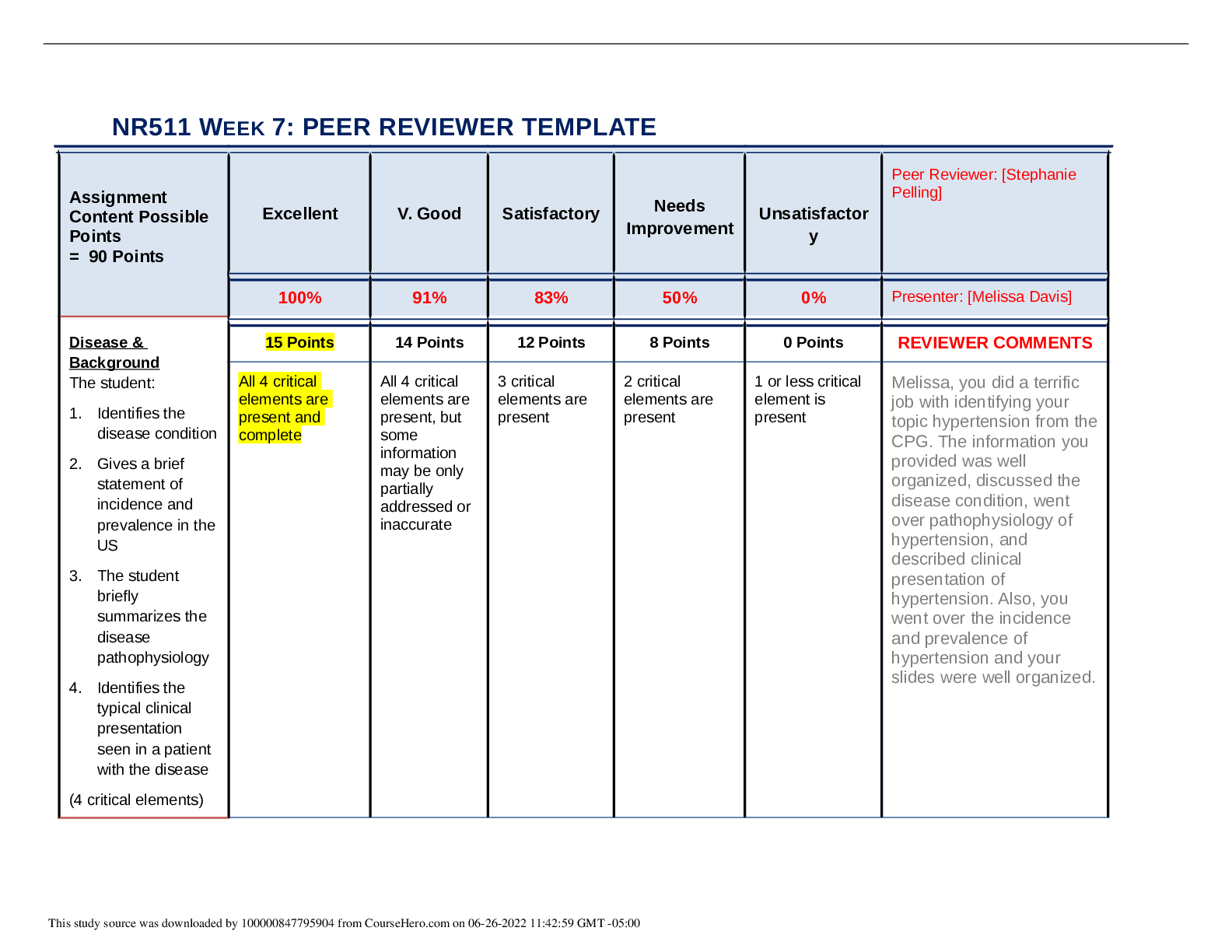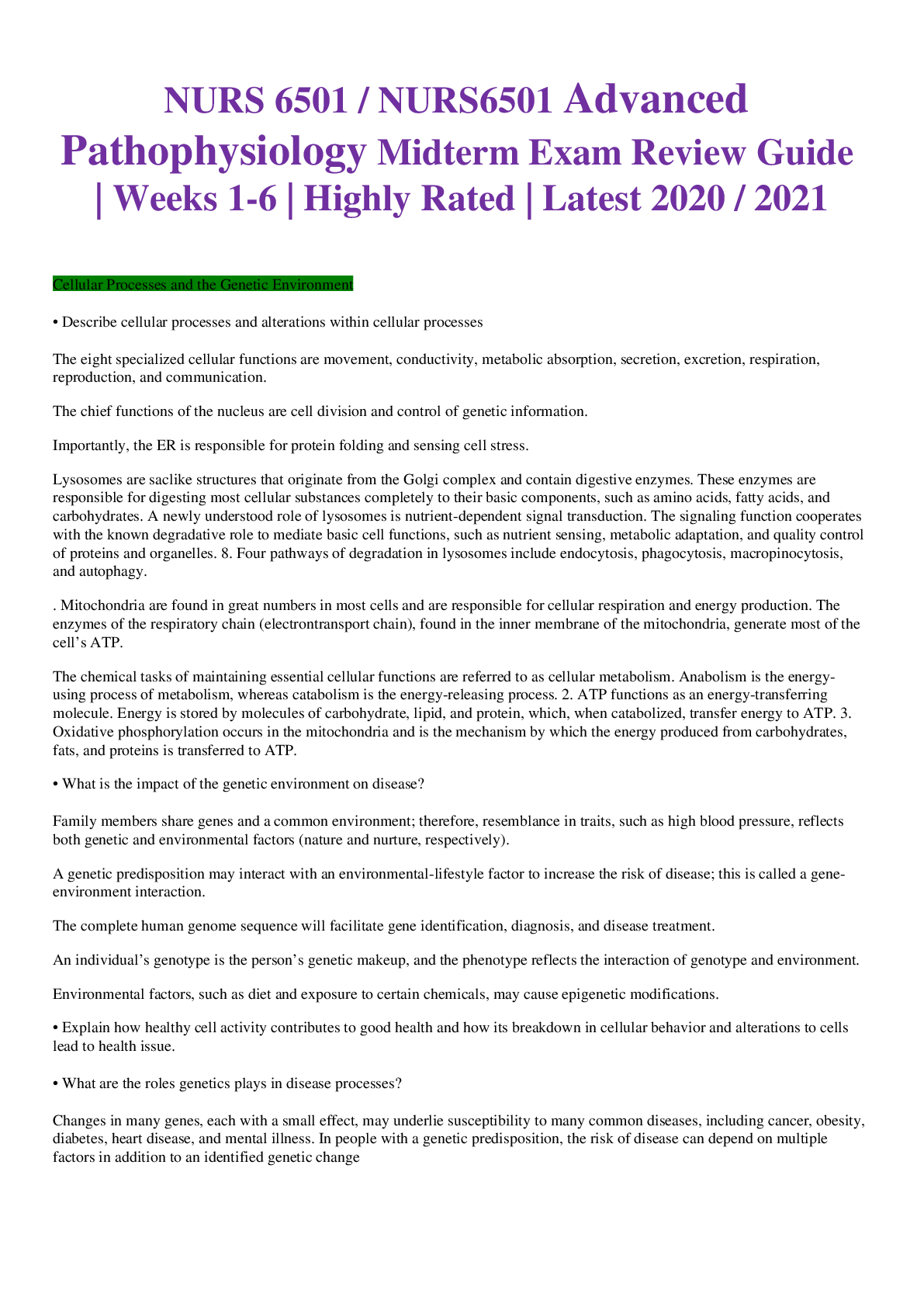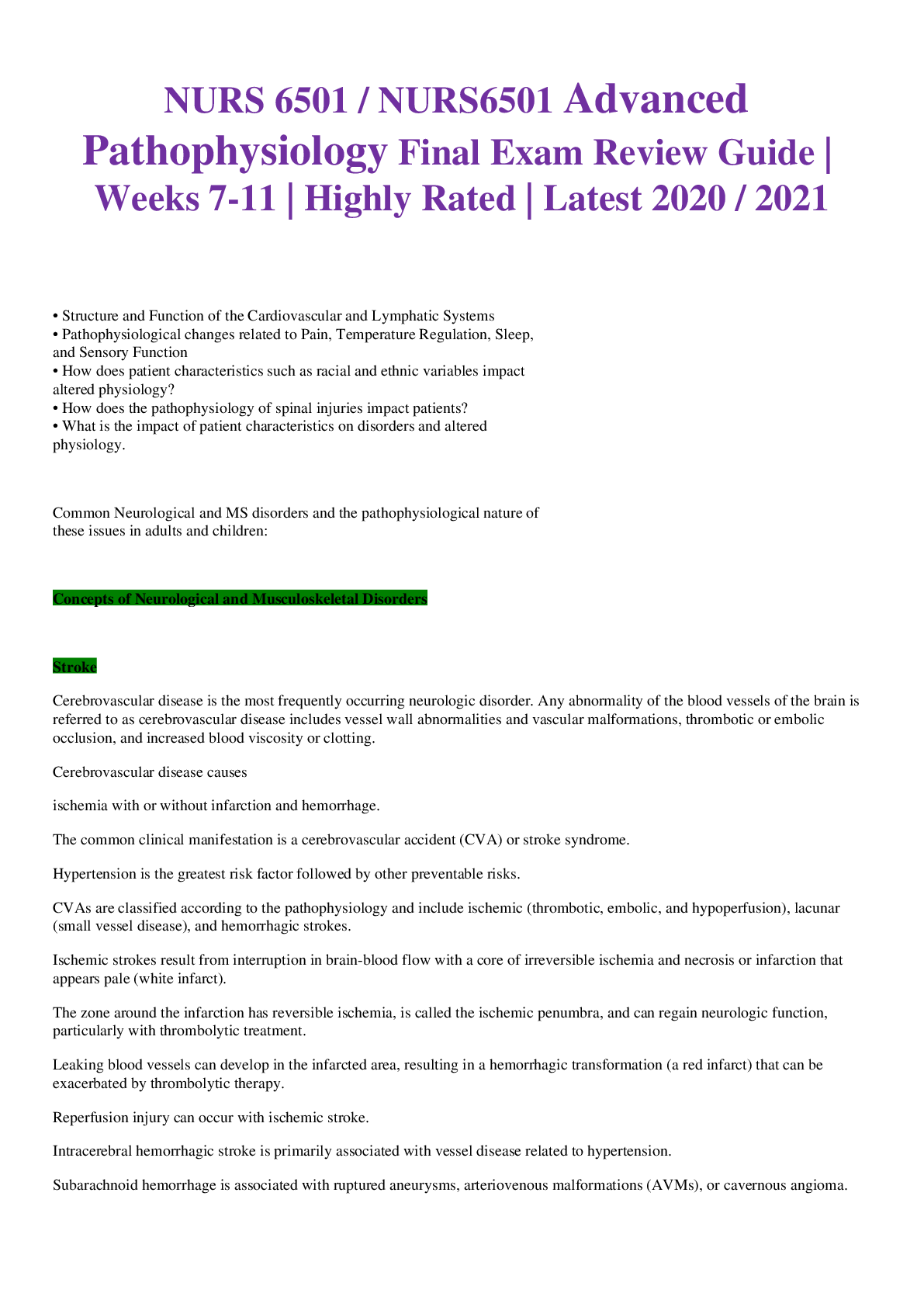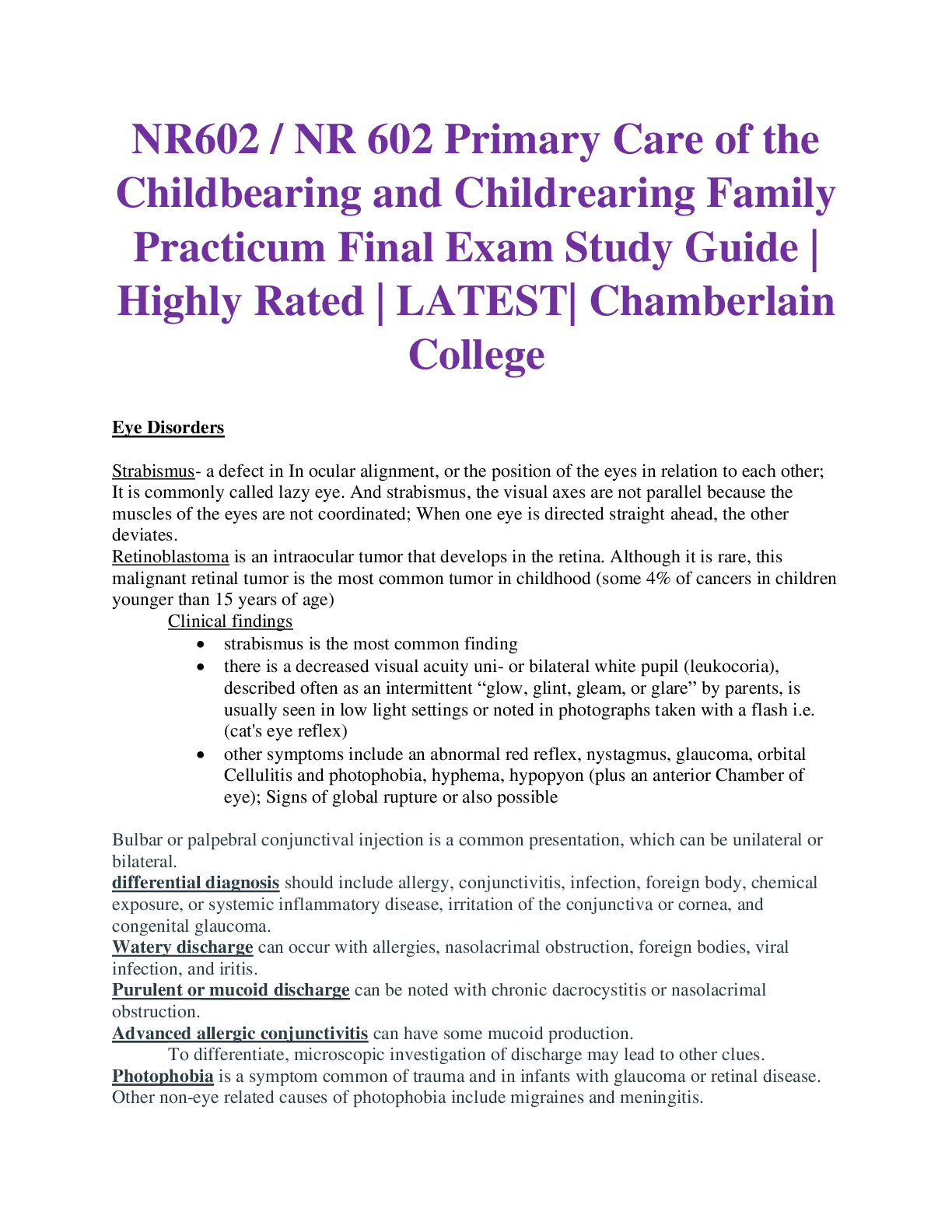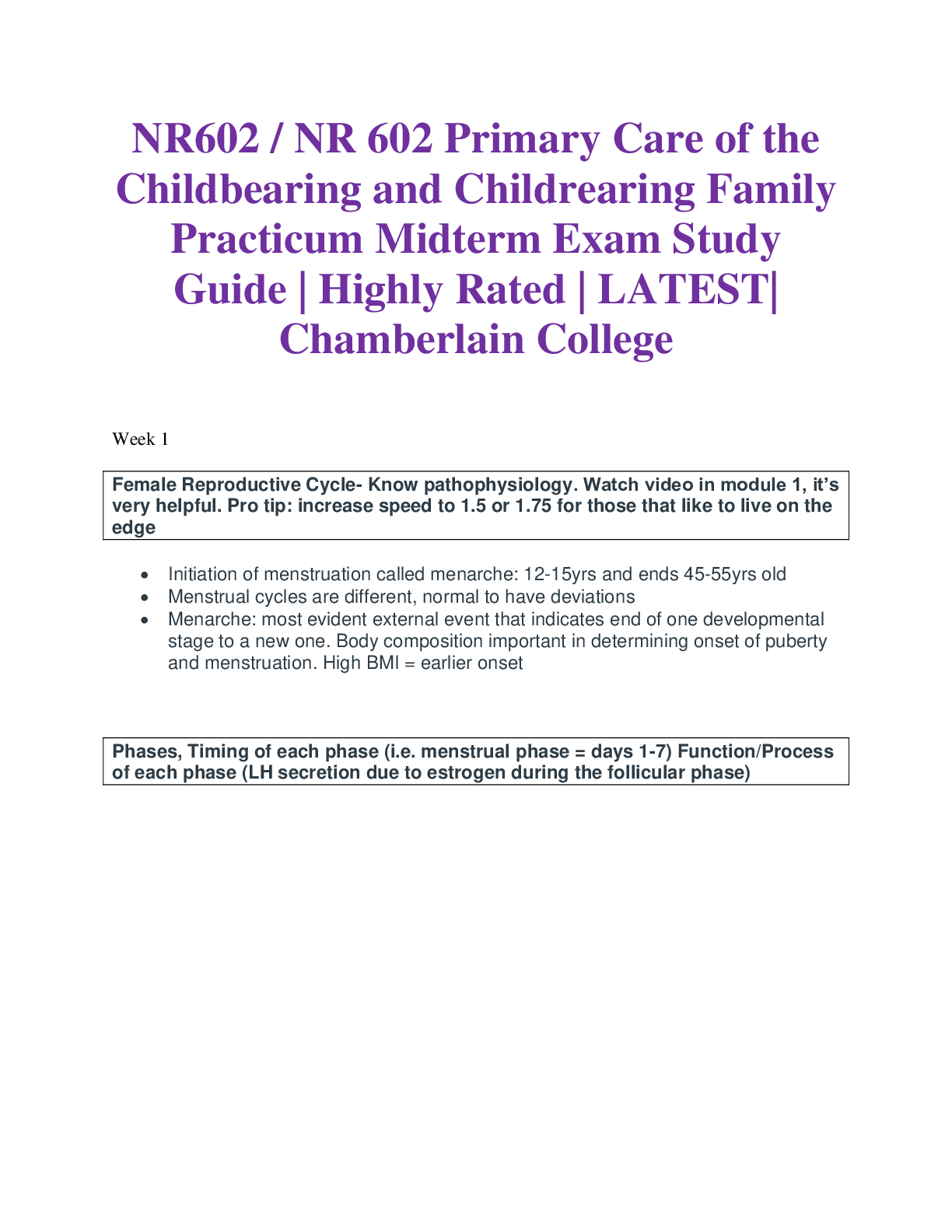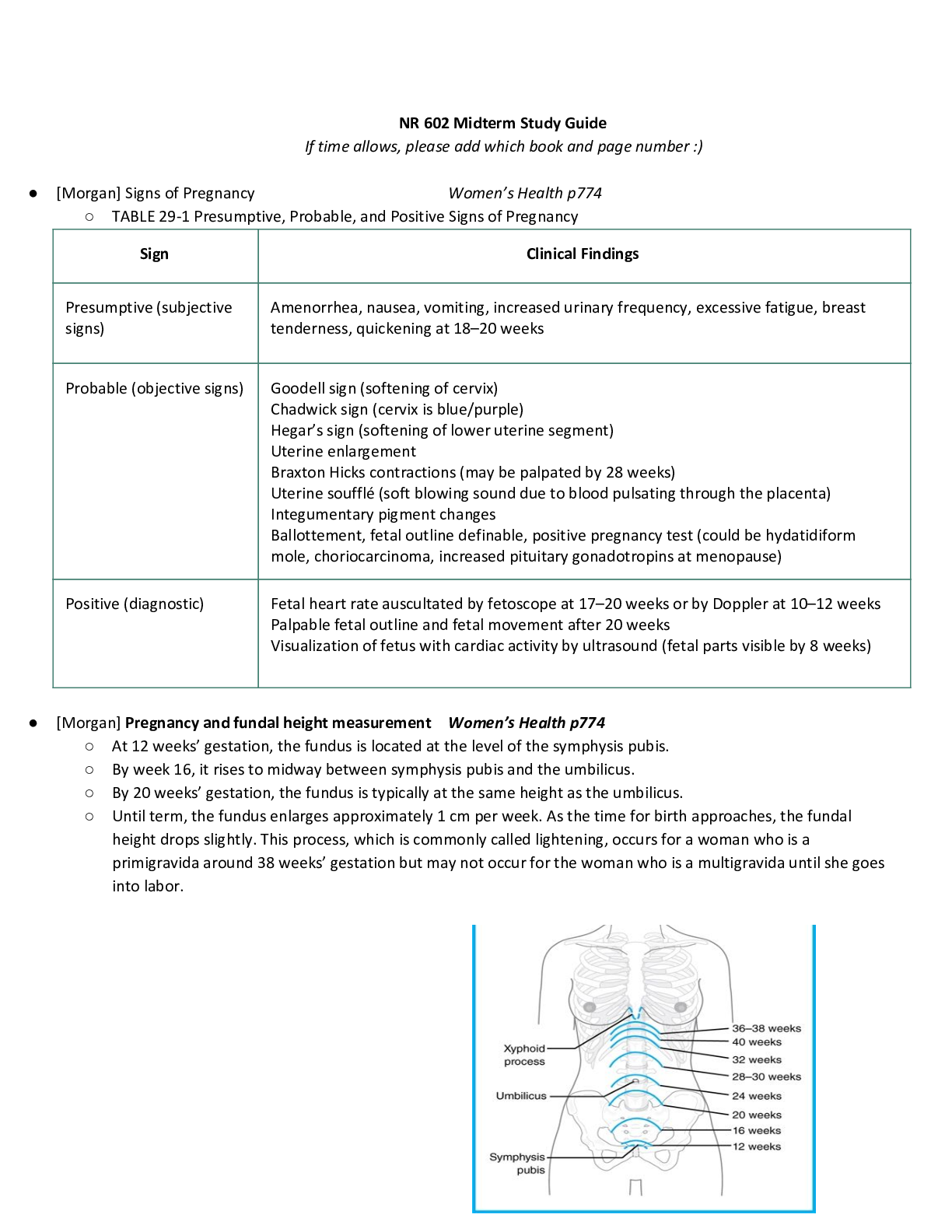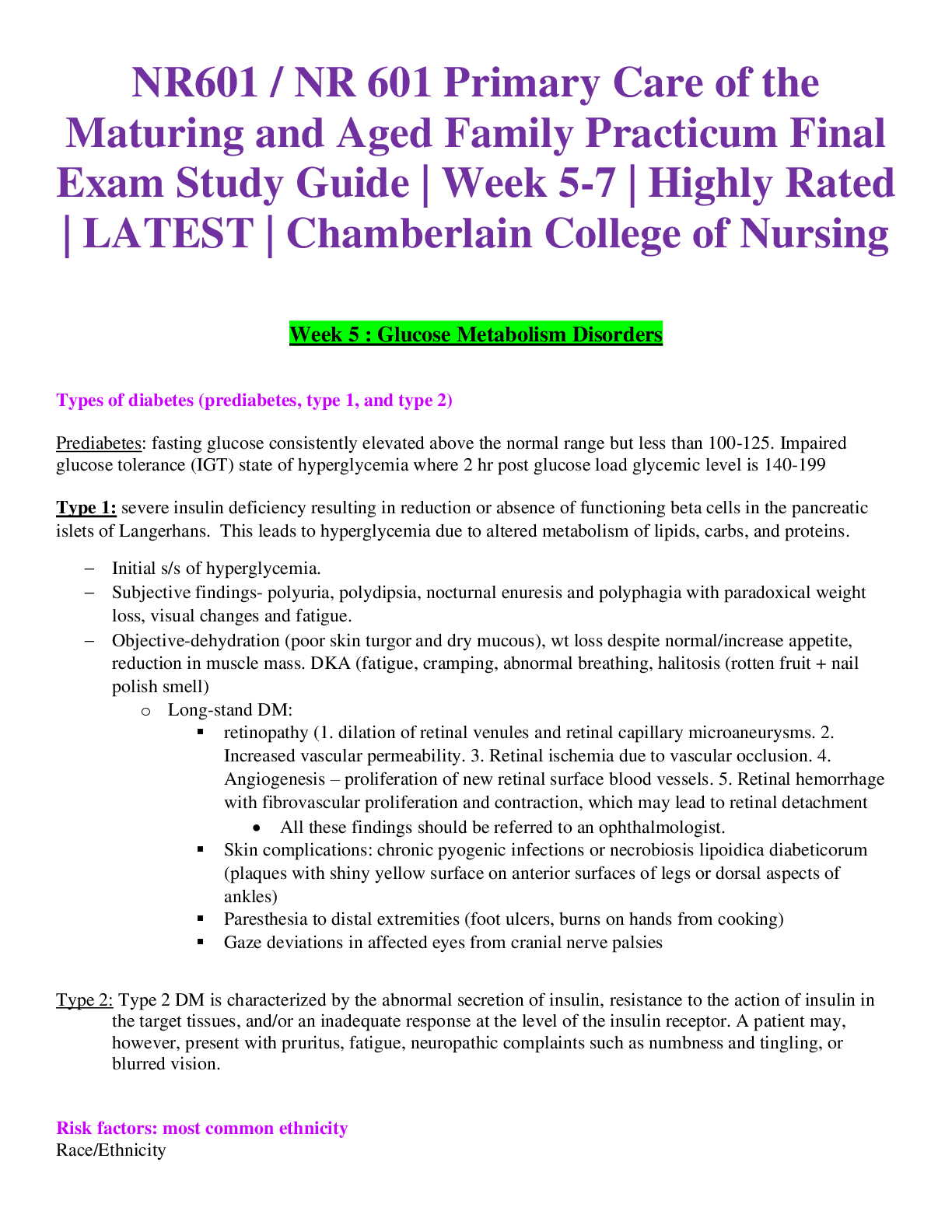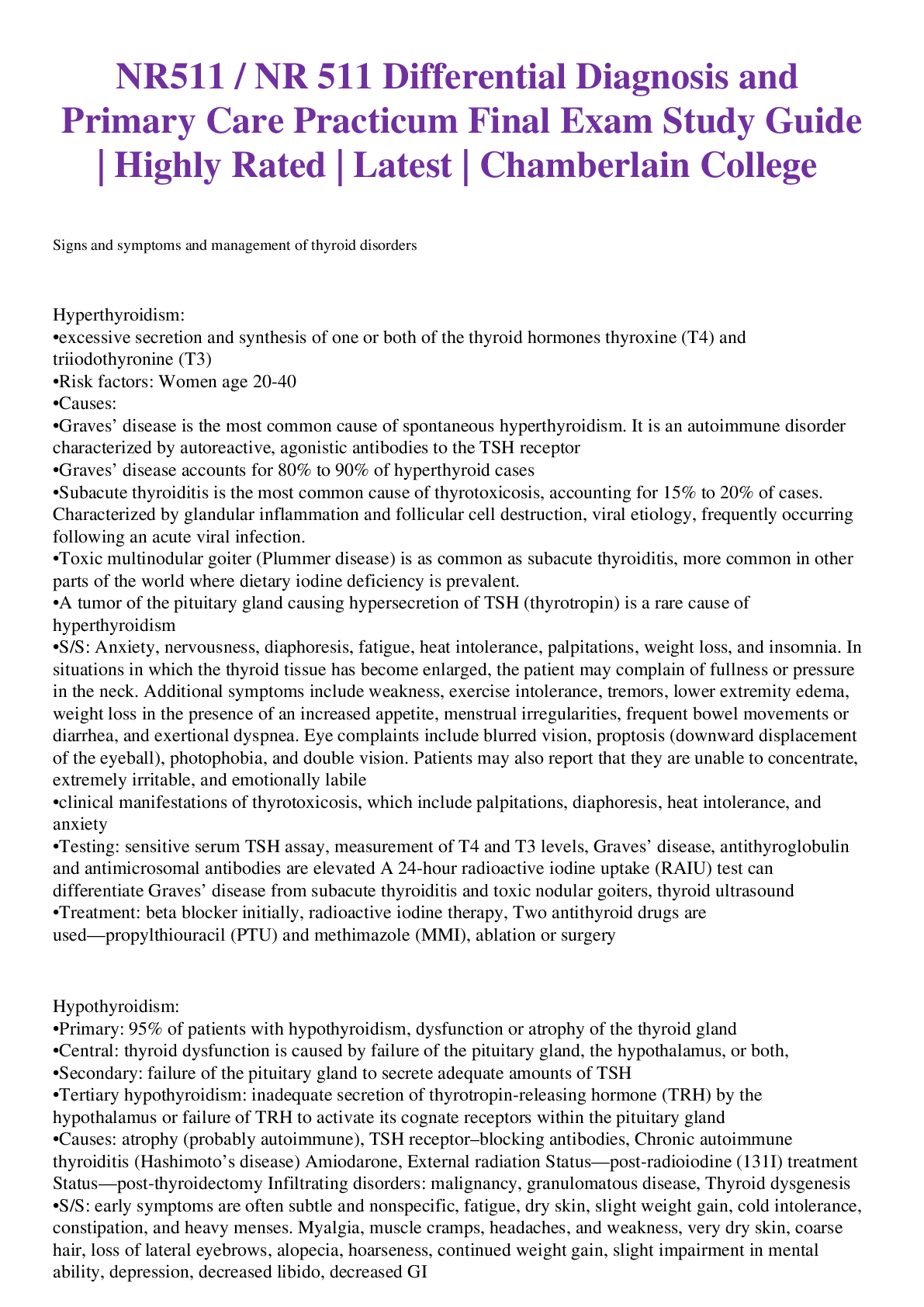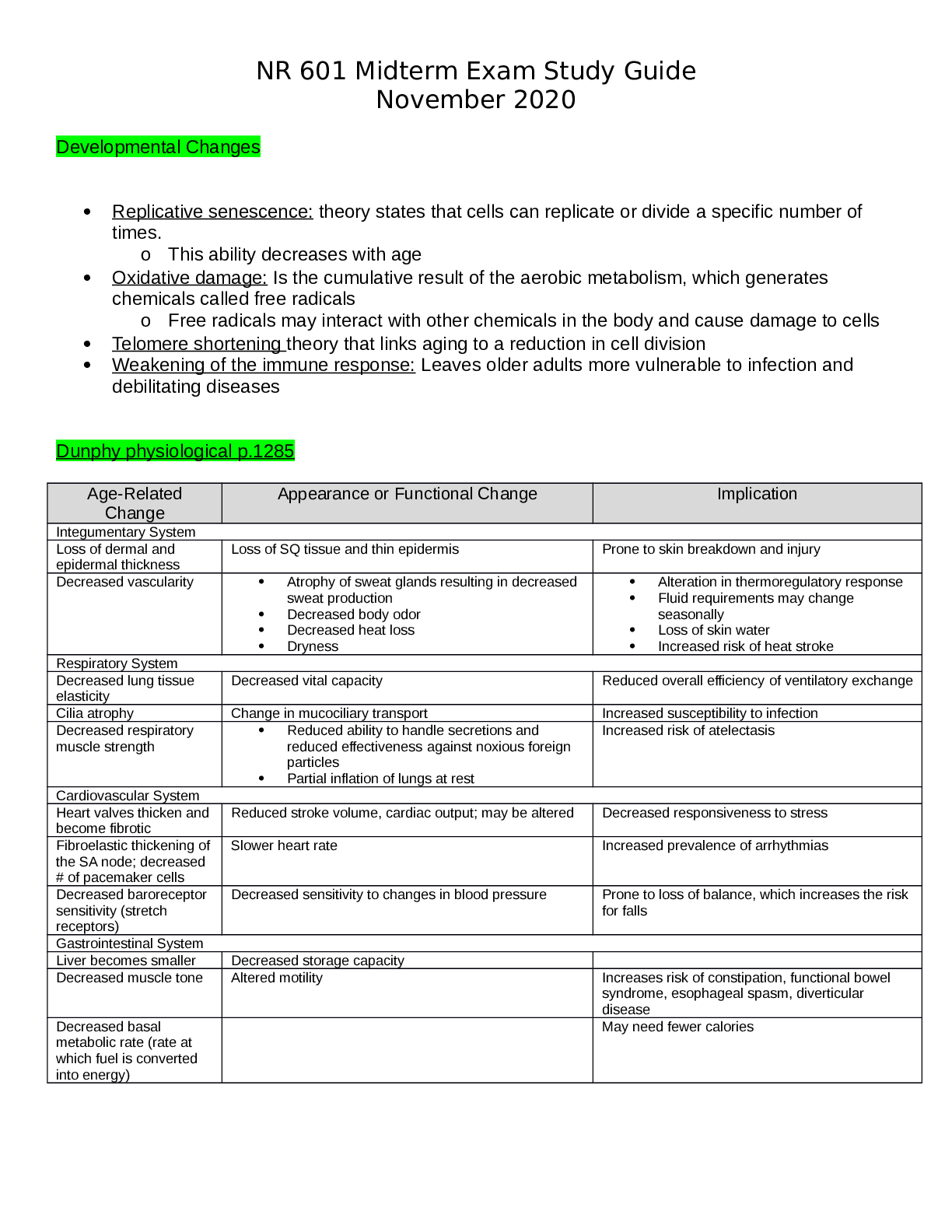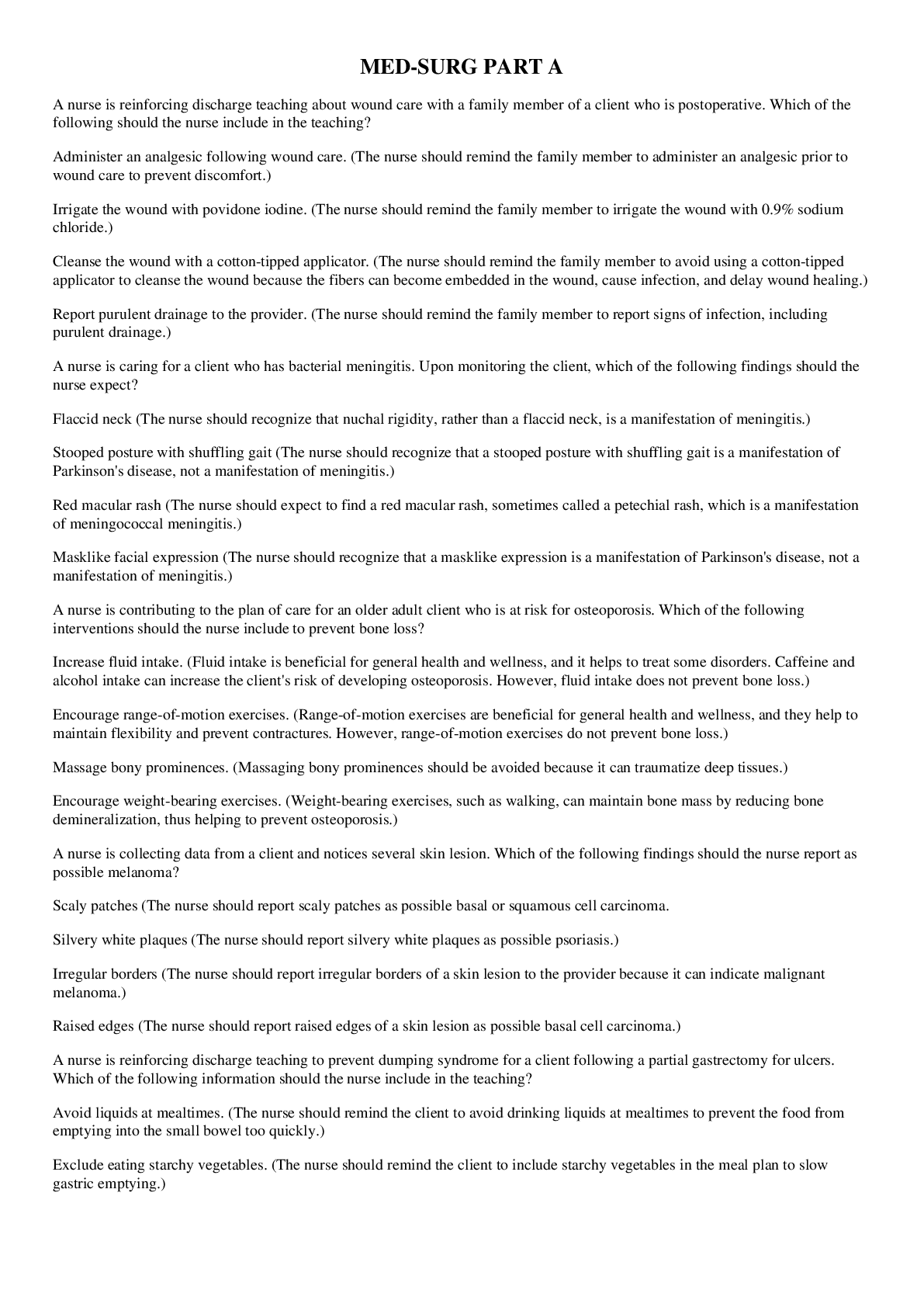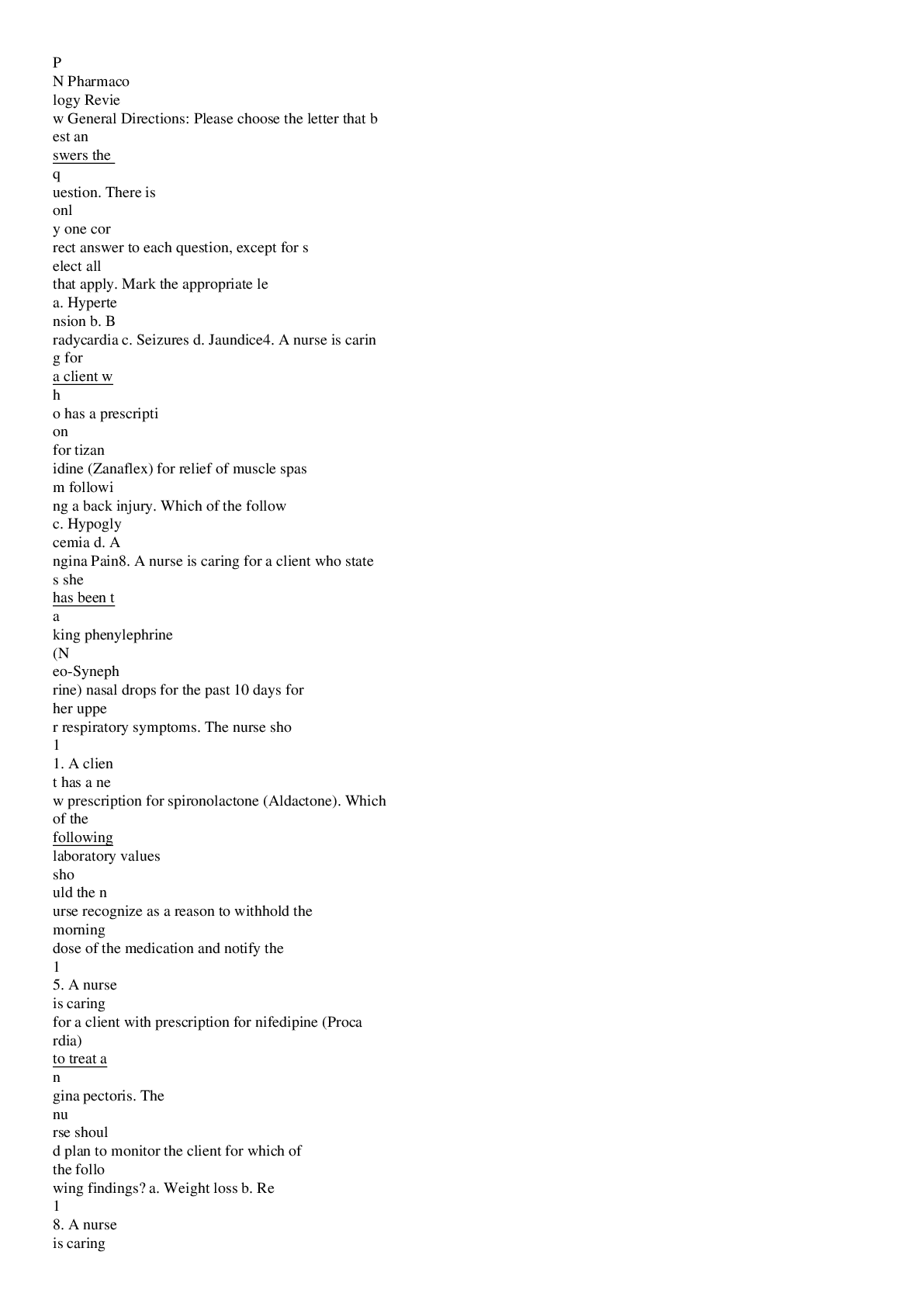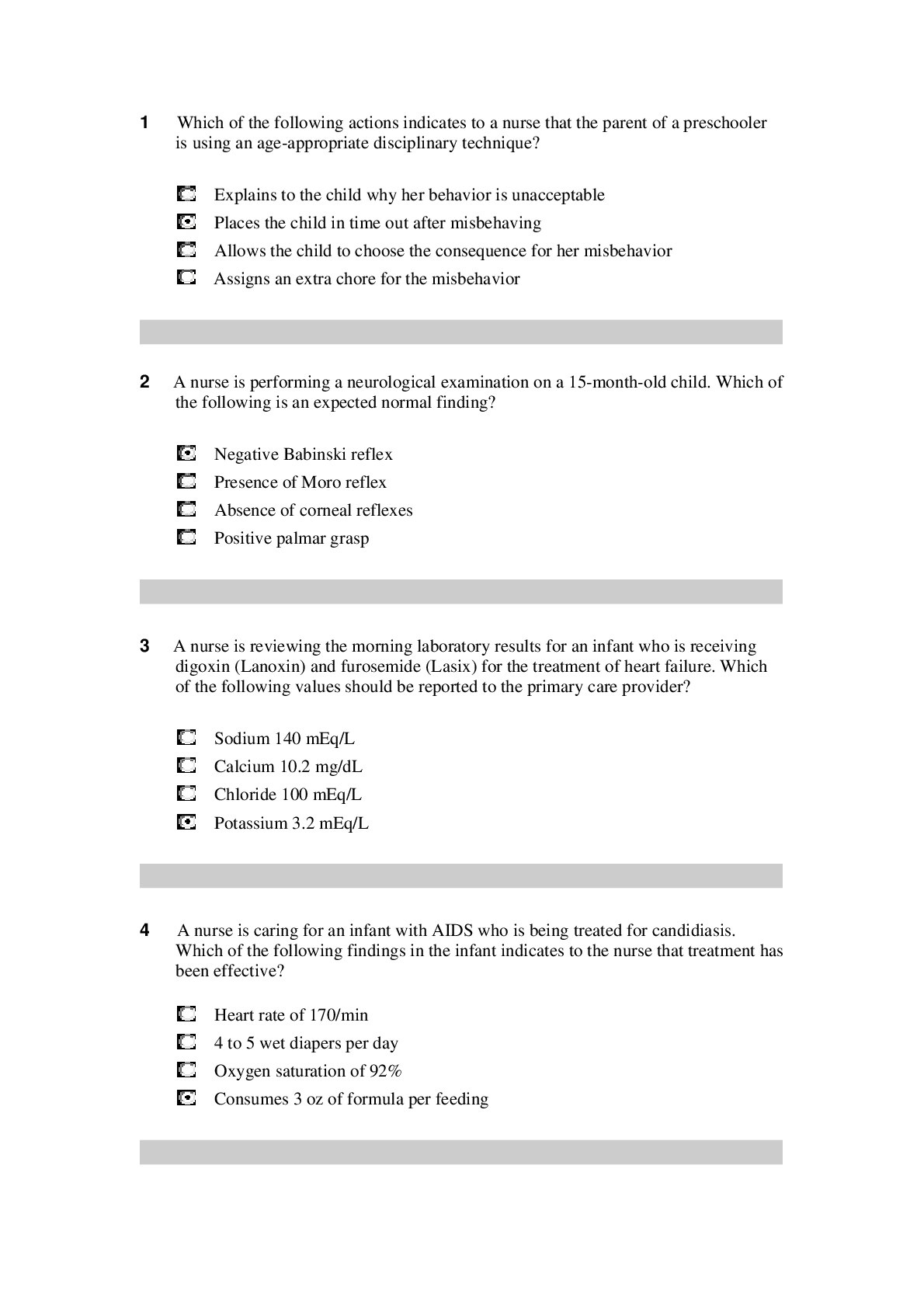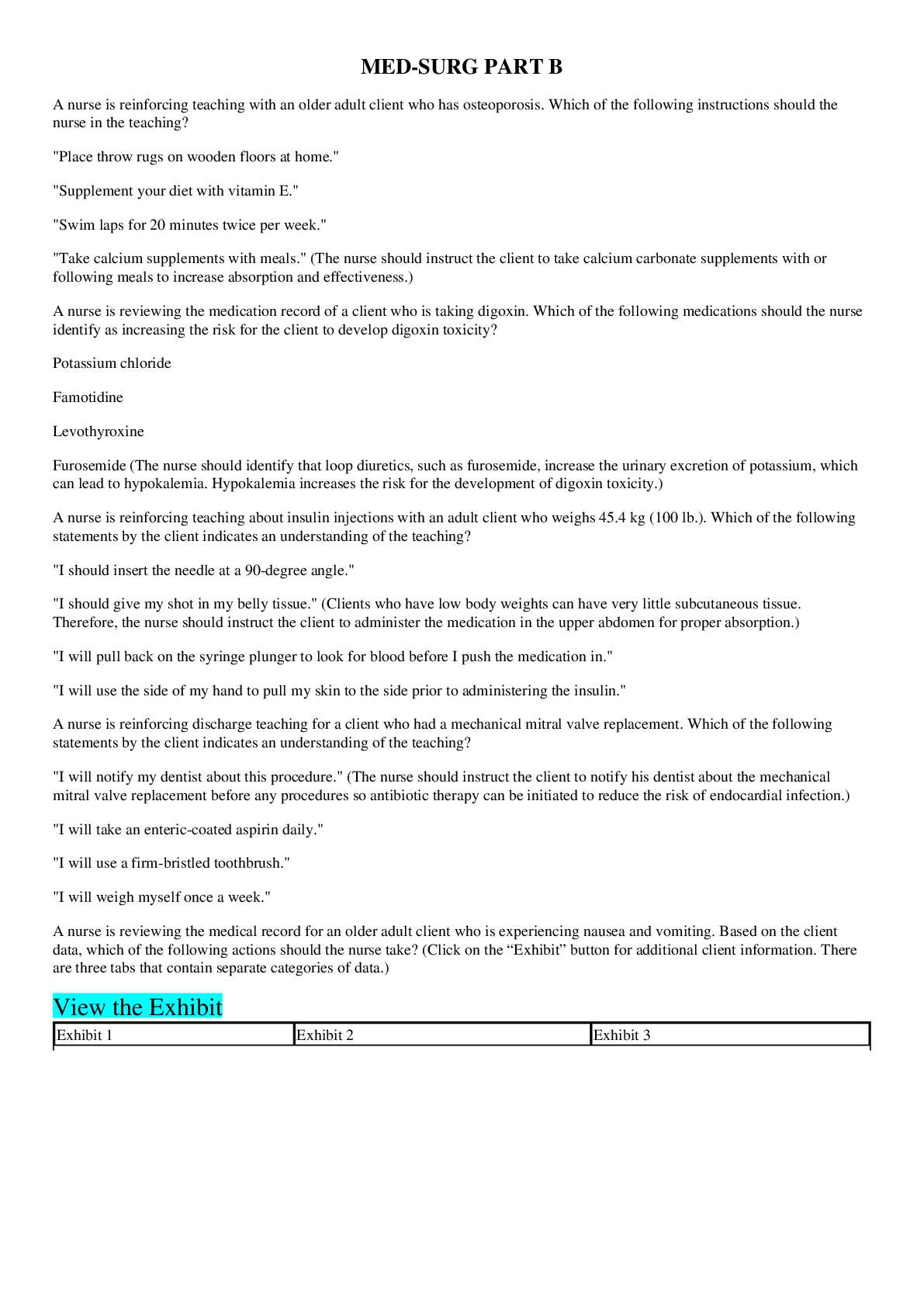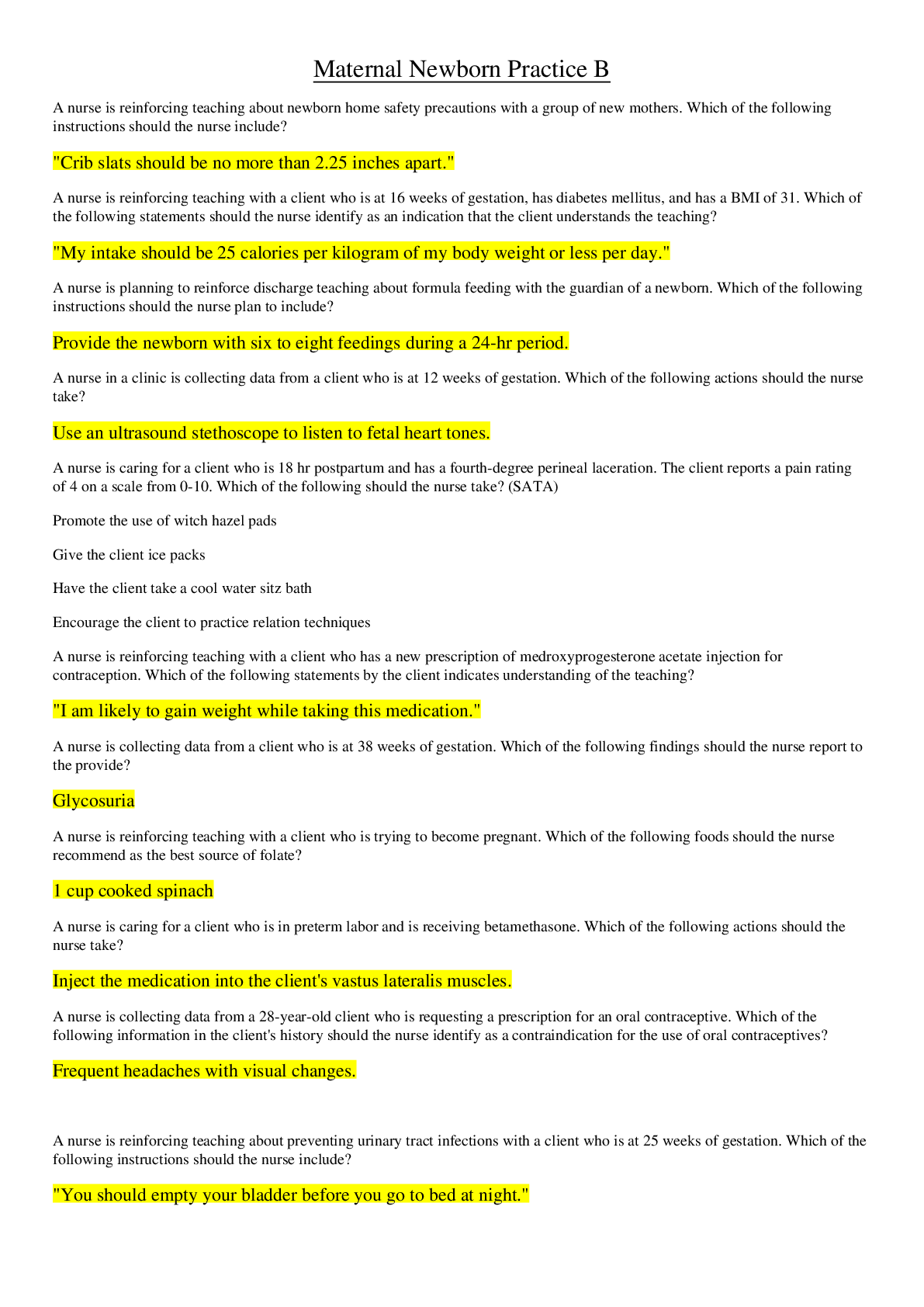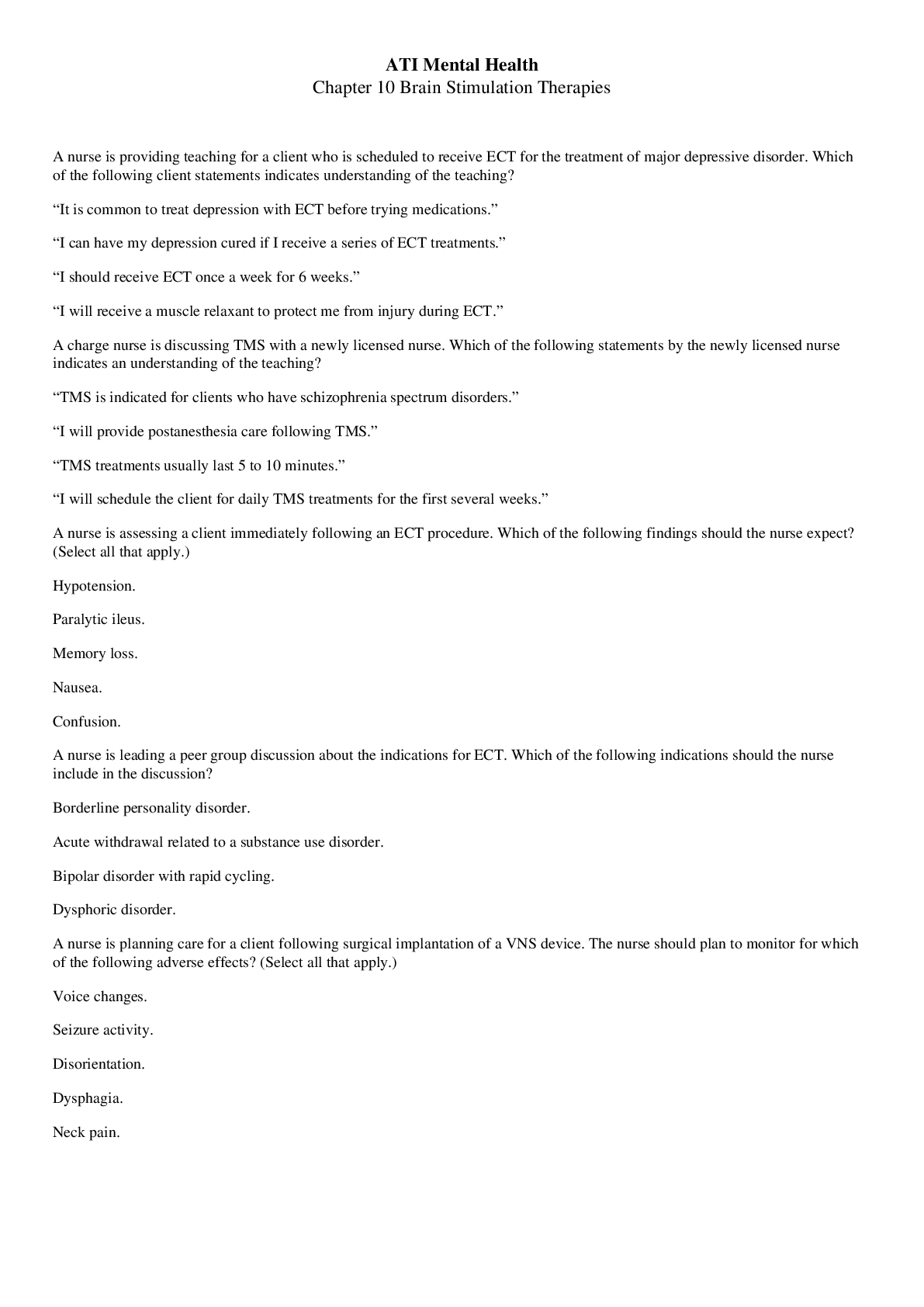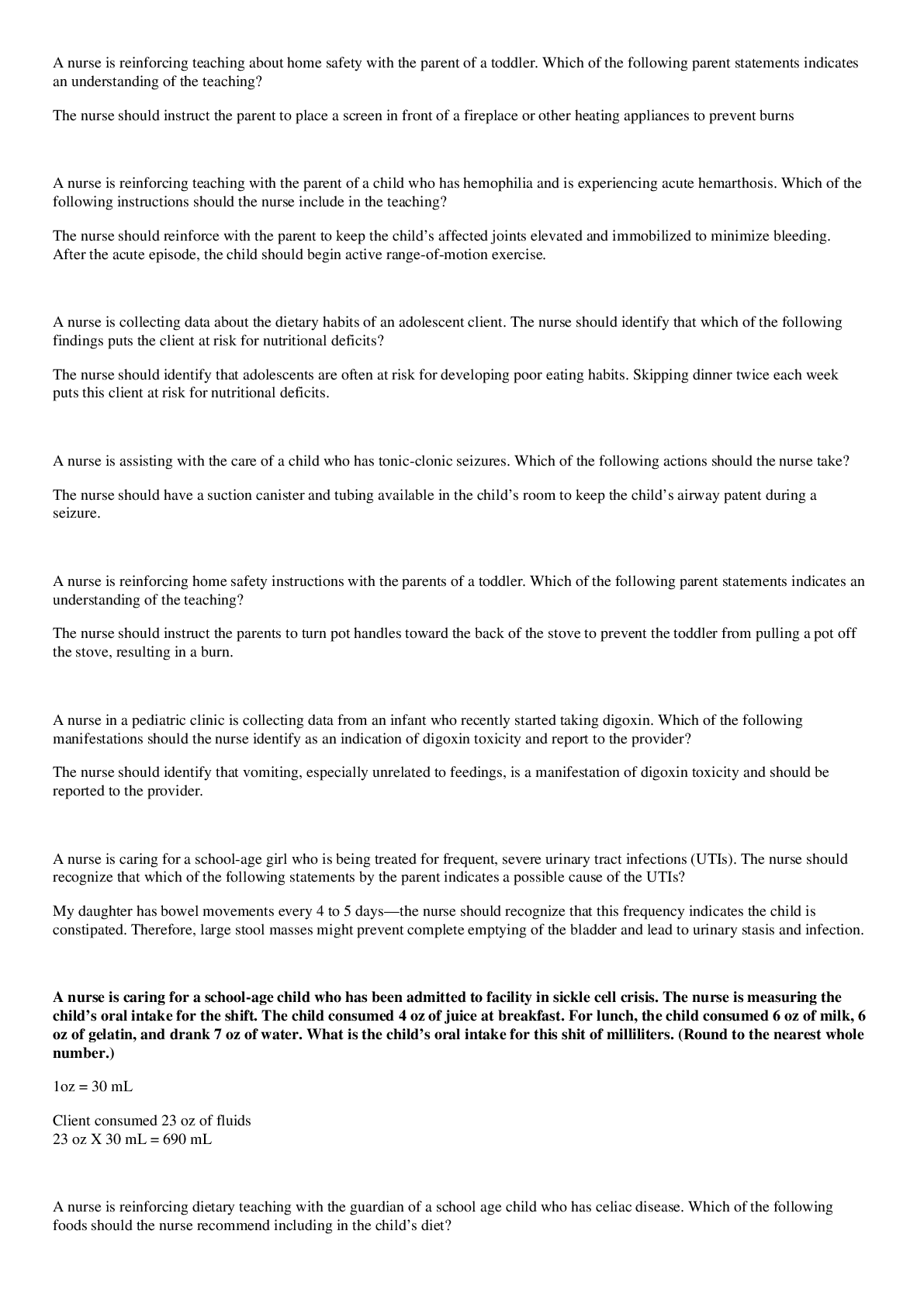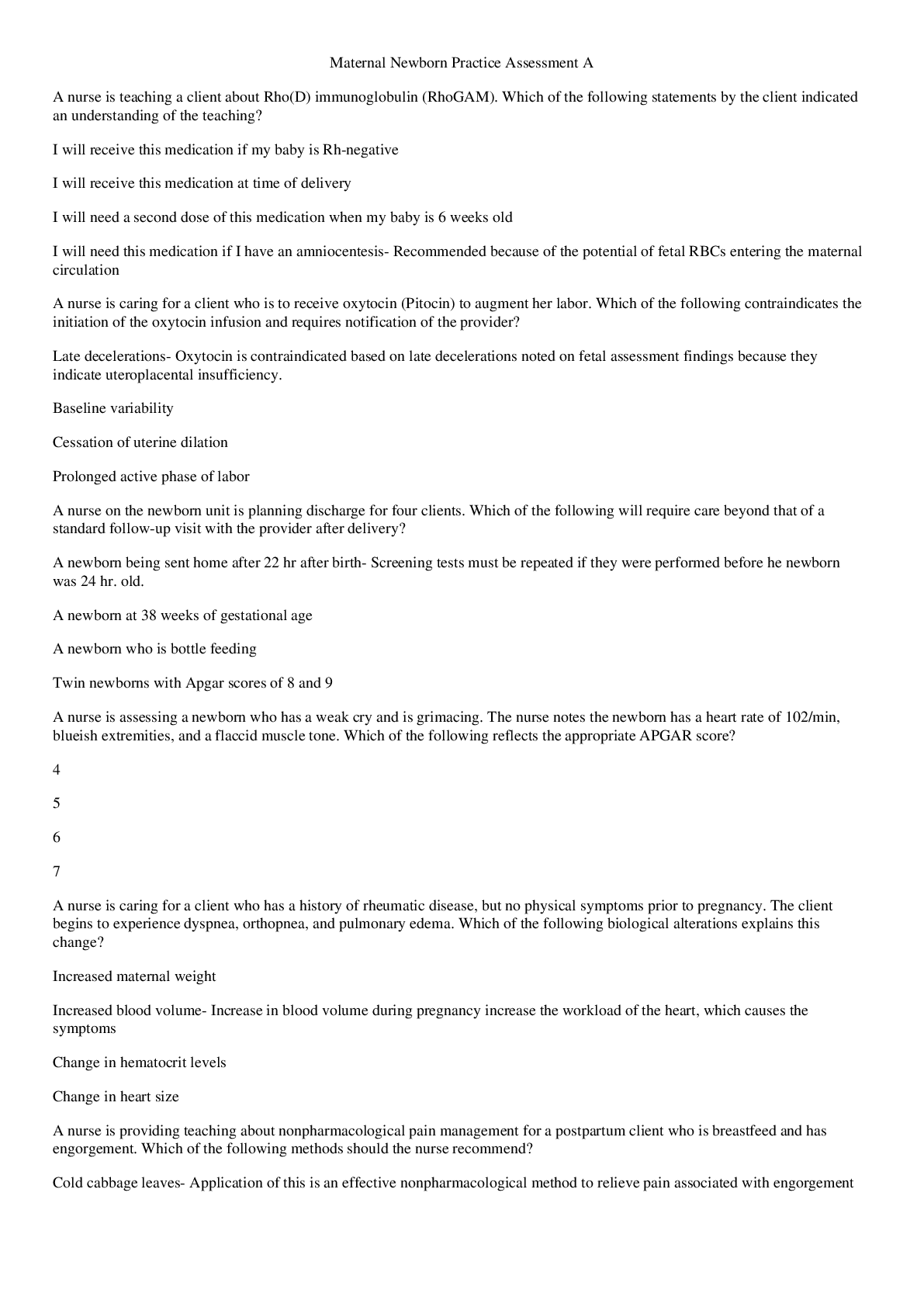*NURSING > STUDY GUIDE > RN Concept-Based Assessment Level 3 | Highly RATED | Download To Score An A (All)
RN Concept-Based Assessment Level 3 | Highly RATED | Download To Score An A
Document Content and Description Below
RN Concept-Based Assessment Level 3 Remediation 1. acute pyelonephritis inflammation indications. • fever, • flank pain, • nausea, • vomiting, • burning on urination, • increased ... frequency, and • urgency. 2. Common physical signs of Down syndrome include; • Decreased or poor muscle tone • Short neck, with excess skin at the back of the neck • Flattened facial profile and nose • Small head, ears, and mouth • Upward slanting eyes, often with a skin fold that comes out from the upper eyelid and covers the inner corner of the eye • White spots on the colored part of the eye (called Brushfield spots) • Wide, short hands with short fingers • A single, deep, crease across the palm of the hand • A deep groove between the first and second toes 3. Discharge Instructions for Multiple Sclerosis at home; • Get plenty of rest. Extreme tiredness is a common symptom of MS. • Plan your activities in advance. • Avoid excessive heat. • Use a cane or other aid to help you get around and conserve energy, if needed. • Stretching can be useful with medicines to help symptoms of stiff muscles. • Exercise. Aerobic exercise may improve your strength, muscle tone, balance, and coordination. A physical therapist can help you determine which exercises are safe for you. • Swimming may be a good exercise in which your temperature doesn't increase. Never swim alone. 4. Borderline Personality Disorder (BPD) Manifestation ; • Fear of abandonment. • Unstable relationships • Unclear or shifting self-image. • Impulsive, self-destructive behaviors • Feeling suspicious or out of touch with reality. • Extreme emotional swings. • Explosive anger. 5. Signs and symptoms of HELLP syndrome include: • Blurry vision • Chest pain or pain in the upper right or middle part of the belly • Headache, fatigue (feeling really tired) or feeling unwell • Quick weight gain and swelling • Nosebleed or other bleeding that doesn’t stop. This is rare. • Seizures or convulsions. This is rare. Convulsions are when your body shakes quickly and without control. 6. methotrexate medication for RA patient teaching -Avoid crowds -Notify HCP for signs of infection -Monitor oral mucosa for ulcerations -Use soft toothbrush -Use electric razor -Wash mouth before and after eating -No floss -No OTC meds especially NSAIDS -Alopecia -Sunscreen 7. symptoms of acute pancreatitis; • Epigastric pain, • nausea and vomiting, • fever, • itching, • jaundice, • tachycardia, • oliguria 8. Complications of Diverticulitis • Abscess: herniated pouch becomes full of infection and is swollen with pus. Patient will have major symptoms (fever, high WBC, intense abdominal pain, nausea, fever) • Rupture of Diverticulum: sac tears open and spills it contents into the abdominal cavity. This leads to peritonitis. • Obstruction due to the inflammation of the tissue or scarring of the tissue • Fistula formation 9. Signs and Symptoms of Diverticulitis signs and symptoms diverticulitis, mnemonic diverticulitis, complications of diverticulitis Remember: “Pouch” • Pain in abdomen…mainly in the left lower quadrant • Observe abdominal bloating and blood in stool • Unrelenting cramping type pain • Constipation • High temperature 10. Sx of Delirium • Disturbance in cognition • Perception • Thinking • Memory • Disturbance in consciousness • Attention • Wakefulness 11. the symptoms of postpartum hemorrhage • bleeding that doesn’t lessen or stop • a drop in blood pressure • a drop in red blood cell count, or hematocrit • a rise in heart rate • swelling • post-delivery pain 12. 7. Non Pharmacological Comfort Nursing Interventions. • Assess the client's need for alternative and/or complementary therapy • Assess the client's need for palliative care • Assess client need for pain management • Recognize differences in client perception and response to pain 13. Crisis nursing intervention • Assess the potential for violence and use safety precautions (e.g., suicide, homicide, self-destructive behavior) • Identify the client in crisis • Use crisis intervention techniques to assist the client in coping • Apply knowledge of client psychopathology to crisis intervention • Guide the client to resources for recovery from crisis (e.g., social supports) 14. Level 1 Crisis Signs and Symptoms: Patients experiencing a level one crisis typically experience anxiety and they also typically begin to use one or more psychological ego defense mechanisms that were discussed above under the section entitled "Evaluating the Constructive Use of Defense Mechanisms by a Client". 15. Level 2 Crisis Signs and Symptoms: Patients experiencing a level two crisis most likely exhibit some loss of their ability to function. They may also try to experiment with alternative methods of coping in order to deal with the crisis that is not being effectively coped with using one's currently used coping mechanisms. 16. Level 3 Crisis Signs and Symptoms: Patients experiencing a level three crisis show the signs and symptoms of the General Adaptation Syndrome which is characterized with fight, flight and panic as discussed above under the section entitled "Coping Mechanisms: Introduction". 17. Level 4 Crisis Signs and Symptoms: Clients experiencing a level four crisis exhibit severe signs and symptoms such as being totally detached and removed from others, feeling overwhelmed, becoming disoriented, and even with thoughts of violence toward self and others. 18. nursing interventions during the manic phase regarding the client's emotional needs • help client become aware of underlying anger; • help verbally acknowledge resistance to therapy; • help with decision making and accepting responsibility and • help to develop coping skills 19. nursing interventions during the manic phase regarding the client's cognitive needs • discourage expensive purchases; • identify behaviors that lead to manic episode; • establish realistic goals; • explore effects of behavior on others; • increase self-esteem and intervene when client has delusions 20. [Show More]
Last updated: 1 year ago
Preview 1 out of 4 pages

Reviews( 0 )
Document information
Connected school, study & course
About the document
Uploaded On
Jan 16, 2022
Number of pages
4
Written in
Additional information
This document has been written for:
Uploaded
Jan 16, 2022
Downloads
0
Views
39

